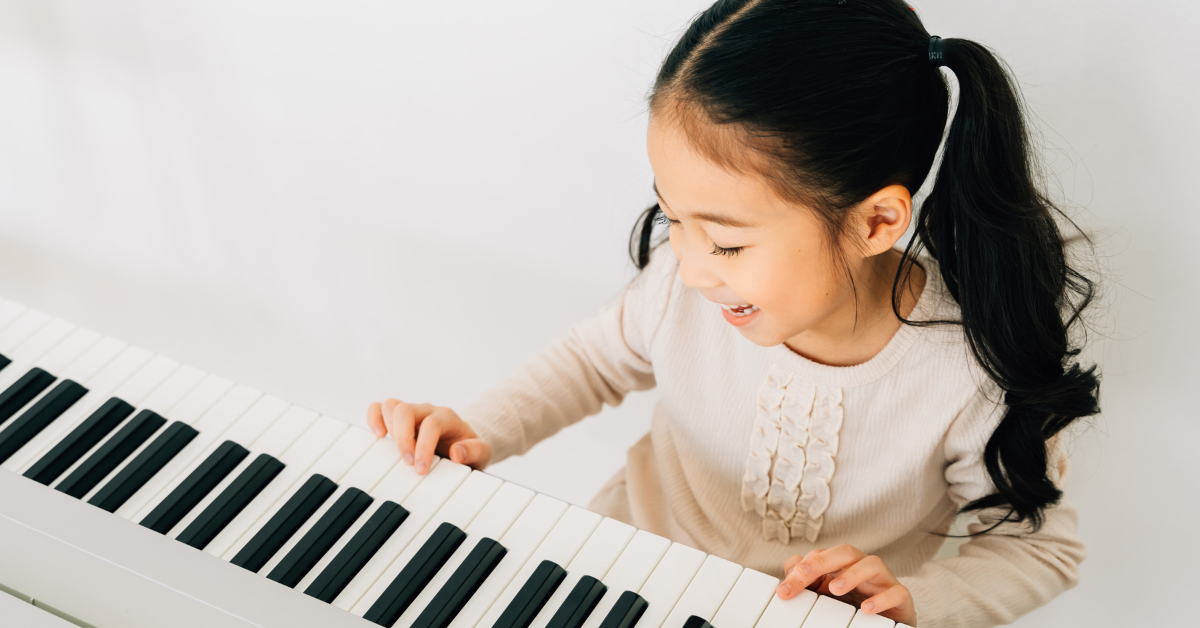Table of Contents
Music education can be a powerful tool in a child’s development, and learning piano is particularly beneficial. For parents considering music lessons for their children, the piano offers a multitude of advantages that go beyond just playing beautiful melodies. Here are the top 10 reasons why learning piano is a great choice for kids aged 4 to 15.
1. Enhances Cognitive Development
Learning to play the piano engages multiple areas of the brain, enhancing cognitive development. It improves memory, spatial-temporal skills, and problem-solving abilities. My neighbor’s daughter, Sarah, started piano lessons at age 5. Her parents noticed she became more adept at puzzles and mental math, skills she developed through her piano practice.
2. Improves Academic Performance
There is a strong correlation between music education and academic success. Skills gained from learning piano, such as focus and discipline, translate into better performance in school. Personally, I found that my ability to concentrate on tasks and manage time effectively improved significantly after starting piano lessons at age 7, which positively impacted my grades.
3. Fosters Creativity and Expression
Playing the piano encourages creativity and self-expression. Children learn to interpret music and add their own flair to pieces. I remember the joy of creating my first little composition—a simple melody that meant the world to me and unlocked a new level of creative expression.
4. Builds Confidence and Self-Esteem
Performing in front of others, whether in a recital or a small family gathering, boosts confidence. A friend’s child, Tom, who was quite shy, began to shine after his first piano recital. The applause and praise he received gave him a newfound sense of confidence and achievement.
5. Enhances Fine Motor Skills
Playing the piano requires coordination between the eyes, hands, and fingers. This practice enhances fine motor skills and hand-eye coordination. Children who play piano often demonstrate improved dexterity, which benefits them in other activities such as sports and writing.
6. Teaches Discipline and Time Management
Piano requires regular practice, teaching children discipline and time management. These are critical life skills that benefit them in all areas of their lives. Reflecting on my childhood, daily piano practice taught me how to prioritize tasks and manage my schedule effectively.
7. Offers a Lifelong Skill and Hobby
Once learned, the ability to play the piano becomes a lifelong skill that enriches one’s life in many ways. It offers a constructive hobby that not only provides joy and relaxation but also serves as a creative outlet for self-expression and emotional release throughout life. Many adults who learned piano as children find themselves returning to the instrument, even into their senior years, discovering the profound mental and emotional benefits it offers.
Playing the piano can enhance cognitive function, improve memory, and foster a sense of accomplishment. Additionally, it creates opportunities for social interaction, whether through group lessons, performances, or simply sharing music with friends and family, making it a cherished activity at any age.
8. Facilitates Emotional Expression and Well-Being
Music is a powerful medium for emotional expression. Playing piano allows children to explore and express their emotions safely and constructively. This can lead to enhanced emotional well-being and resilience.
9. Promotes Family Bonding and Social Skills
Piano playing can be a family affair! Hosting a family music session where everyone joins in creates cherished memories and strengthens family bonds. I fondly recall evenings spent with family, each of us taking turns at the piano, laughing, and creating music together.
10. Enhances Listening and Concentration Skills
Learning piano sharpens listening skills and improves concentration. Children learn to listen carefully to both instructions and music, enhancing their auditory and attention skills. These abilities are invaluable not only in music but across all educational pursuits.
Each of these benefits is reinforced by countless stories and experiences from music educators and parents alike, highlighting the transformative power of music education. Whether it’s the joy of performing in front of an audience, the pride that comes from mastering a challenging piece after hours of practice, or the simple pleasure of making music with friends and family, learning piano enriches children’s lives in profound ways.
This journey not only fosters creativity and self-expression but also builds discipline, patience, and confidence. As children navigate their musical paths, they develop essential skills that extend beyond the piano, positively impacting their overall growth and development.
Finally
The benefits of learning piano for young children are vast and varied. It supports their cognitive, emotional, and social development while providing a foundation for academic success. For parents considering music education, piano lessons offer an enriching experience that can have lasting positive effects. Encourage your child to explore the world of music and watch them flourish both in and out of the classroom.
Consider enrolling your child in piano lessons today to unlock their potential and nurture their love for music!
